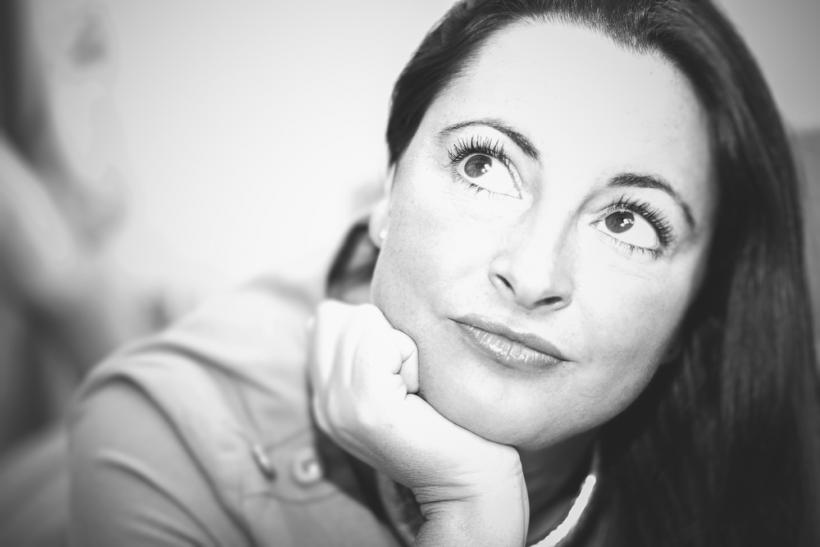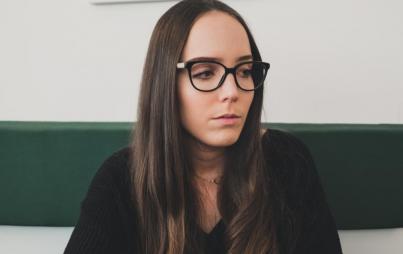
I’m doing all I can to learn how to accept my new identity and this new normal because at the end of the day, my antidepressants are keeping me alive.
CN: Suicidal ideation
“I feel like I’ve lost myself. I don’t know what’s me anymore,” I quietly said to my therapist during one of our sessions a few months ago. I had been on my current antidepressant for seven months at this point, and while my depression had somewhat improved, I was constantly questioning other physical and mental symptoms. Did anxiety cause my insomnia or was it a side effect of the medication? Was I crying less because my depression was improving, or was I just overmedicated?
I worried the real me was trapped inside, suffocated by medication.
When I first started taking antidepressants in 2015 during my first major depressive episode, I treated it like a course of antibiotics. I planned to stay on them until I got through the episode and started to feel better. I knew there would likely be some negative side effects like headaches, nausea, constipation, etc., but I was prepared to ride them out. I expected to see tangible results like you would when taking antibiotics for an infection. I was anxious to start to feel better and get back to my life.
After starting Zoloft, I gained over 30 pounds in a matter of two months and couldn’t stop focusing on food. I also didn’t notice an improvement in my depression or anxiety. Instead of talking to my doctor, I just decided to stop taking my pills. I had abruptly stopped other medications in the past and didn’t see any difference — but antidepressants aren't like other medications.
I hated that I needed medication to help me feel positive emotions. Why couldn’t I be happy on my own? It bothered me that I relied so heavily on this daily pill.
A few days later, I started having intense suicidal thoughts. I had a strong urge to end it all. I spent hours pacing around my apartment trying to convince myself that I was okay. In a panicked state, I went to my medicine cabinet and took the little white pill. And the next morning, I called my doctor to schedule an appointment to discuss going off of it.
It took me about six weeks to slowly wean myself off of the medication. I had learned the hard way the dangers of just quitting cold turkey. And it was at that moment that I vowed to avoid antidepressants in the future and instead rely on talk therapy and meditation to manage my depression and anxiety.
But when another episode hit two years later, I realized that these two things wouldn’t be enough to get me through it.
At this point, I was barely getting out of bed each morning. I spent my days at work counting down the minutes until I could crawl into my bed and watch Friends on repeat. I constantly thought about how great it would be if I didn’t wake up. I was seeing my therapist twice a week, but I couldn’t get myself out of this hole I found myself in. She suggested I set up a consultation with a psychiatrist to discuss medication options. I reluctantly agreed because deep down I knew I needed some extra help to get through this.
You Might Also Like: The Conversation We’re Not Having About Mental Health
My psychiatrist put me on Pristiq, an antidepressant. I was so lucky in that I didn’t have any noticeable negative side effects that can come with starting an antidepressant. And it helped me get through that depressive episode, which lasted a few months. Thanks to Pristiq, I was able to get out of bed each morning and rediscover what happiness felt like.
But then the obsessive worrying began.
I started questioning any slight emotional or physical changes. For example, I noticed that I was crying less, which should be a great thing, right? But for me, crying is a necessary and familiar way to release my emotions. I discussed lowering the dose with my doctor, but she strongly advised against this since I was still experiencing some anxiety and suicidal thoughts. I hated that I needed medication to help me feel positive emotions. Why couldn’t I be happy on my own? It bothered me that I relied so heavily on this daily pill.
To rebel against these frustrations, I would purposefully not take the medication for two to three days, which would lead to hours of sobbing or fits of rage. I know this isn’t emotionally healthy or safe, but I was desperate to feel something other than happiness.
It’s scary to go off a medication that affects your emotions and brain chemistry.
As someone who has dealt with multiple depressive episodes while taking my medication, I’m so fearful that my depression will worsen if I go off it. What if I go off the meds, and I’m not able to conquer my suicidal ideations? What if I end up making a suicide attempt? If the days where I skip my medication are any indication of what would happen if stopped taking it permanently, there’s a good chance that I wouldn’t live to see my brother get married. And for this reason alone, I won’t be discussing going off my medication with my doctor anytime soon.
Since starting this journey, I’ve learned a few important things. You may not see tangible results right away, but you’ll learn how to notice the subtle shifts that prove the medication is working. I can tell it’s working when I’m at a social function and can be fully present and enjoy myself or when I’m able to give my all at work and not want to collapse in bed as soon as I get home. Additionally, mental illness is just as much an illness as anything else. I wouldn’t question having to take medication for the rest of my life if I had diabetes. Why should there be any shame in needing a daily pill to keep mentally healthy?
I’ve also realized that it takes more than a pill to manage my depression and anxiety. I still see my therapist once a week and practice meditation daily. I also still have major depressive episodes — but that doesn’t mean the medication isn’t worth it. I’m doing all I can to learn how to accept my new identity and this new normal because at the end of the day, my medication is keeping me alive — and that’s the most important thing.








